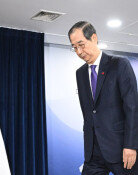Youth bearing the brunt of youth fraud impact
Youth bearing the brunt of youth fraud impact
Posted February. 28, 2024 07:37,
Updated February. 28, 2024 07:37
The housing situation for youth and lower to middle-income families worsens as monthly rents for small apartments (“villas”) and offices in Seoul rapidly increase. The average monthly housing cost exceeds one million won when adding utility bills. This was impacted by tenants flocking to pay monthly rent instead of jeonse (key money deposit) due to fears driven by the recent jeonse fraud scandal. High interest rates, inflation, and the burden of housing costs threaten the youth's livelihood.
According to a Dong-A Ilbo analysis, the average monthly rent for small villas under 40㎡ for new rents in Seoul over the past year is 850,000 won, up 14% from the previous year. The rent for small officetels rose by more than 8% to 830,000 won. Monthly housing costs exceed one million won, when adding around 170,000 won for utility bills. According to a government survey last year, the average monthly salary of youth aged 19 to 34 was 2.52 million won, which means that 40% of their monthly salary is spent on housing.
Higher rent fees were impacted by a trend to avoid paying jeonse to lease villas and officetels, which are quite popular with graduates out of college and newlyweds. The number of new villa (multi-family housing units) construction in the Seoul metropolitan area has also declined by more than 70%. After the fraud, dwindling demand for villas and officetels has also impacted supply, raising concerns that the housing market for lower-income brackets is shrinking. People can no longer afford to save money while living in smaller housing on rent to purchase a home later.
It's been over a year since the rent fraud emerged, but people are still anxious as frauds persisted in Incheon and Daejeon and damage relief was adequately provided, despite the execution of the special law to prevent lease fraud in June last year. Despite nearly 13,000 individuals identified as victims of rental fraud, only 199 people have received their deposits back through public auction or negotiating.
Though the National Assembly said it would take measures to address gaps in the legislation every six months after the special law was enacted, it has given up. However, it must take action to come up with an amendment bill, as most of the lower-income tenants living in smaller housing are exposed to risks as they cannot individually register themselves on the land register. There are also tenants living in villas illegally converted from neighborhood living facilities. We need to accelerate to provide affordable housing for lower-income families to support the villa and officetel market conditions.







